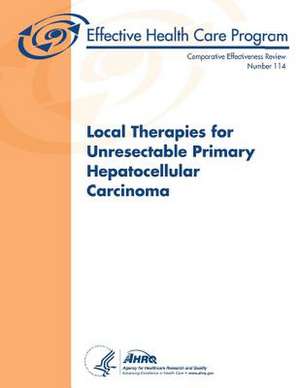Local Therapies for Unresectable Primary Hepatocellular Carcinoma
Autor U. S. Department of Heal Human Services, Agency for Healthcare Resea And Qualityen Limba Engleză Paperback
Preț: 157.00 lei
Preț vechi: 165.26 lei
-5% Nou
Puncte Express: 236
Preț estimativ în valută:
30.05€ • 31.29$ • 25.39£
30.05€ • 31.29$ • 25.39£
Carte indisponibilă temporar
Doresc să fiu notificat când acest titlu va fi disponibil:
Se trimite...
Preluare comenzi: 021 569.72.76
Specificații
ISBN-13: 9781491081099
ISBN-10: 1491081090
Pagini: 330
Dimensiuni: 216 x 280 x 18 mm
Greutate: 0.77 kg
Editura: CREATESPACE
ISBN-10: 1491081090
Pagini: 330
Dimensiuni: 216 x 280 x 18 mm
Greutate: 0.77 kg
Editura: CREATESPACE
